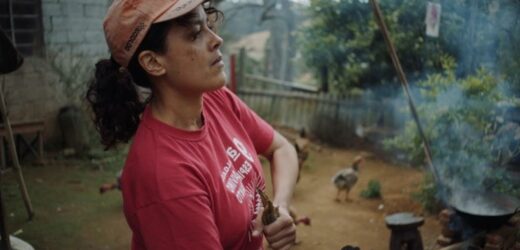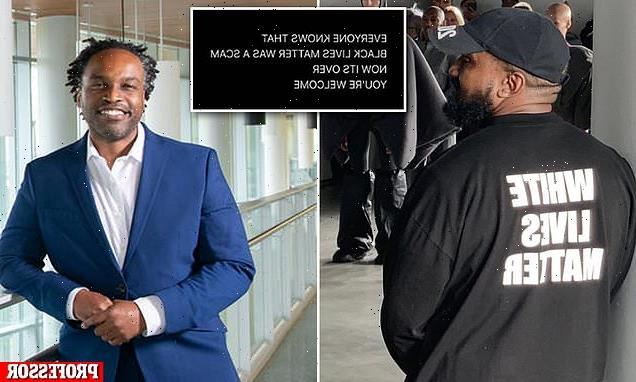Hailed as a discovery by many critics who caught it at Toronto, where it world premiered in the Platform section, “Charcoal” adds Markowicz name very firmly to that of an exciting new young generation of women cineastes in Brazil.
It follows a family stretched thin in the smoke-enveloped Brazilian countryside, surrounded by numerous coal mines. When life becomes monotonous, matriarch Irene cuts a ludicrous deal with a local nurse. Shrugging familial responsibilities, she callously agrees to put her ailing father out of his misery to house a fleeing fugitive, earning a lump sum of money.
Darkly humorous, the film is a grim depiction of humans with nothing left to lose, coming to terms with the world around them that’s fallen deeper into roiling apathy and brutality. The project bleakly portrays a protagonist who can no longer beat back the systems that oppress them, so they figure they ought to join them instead.
“We live in a very violent world, immune to its absurd moments. In Brazil, we have a president that says that he’d rather have a dead son than a gay son. They say people should be armed to defend themselves, to create peace. All of these contradictions that we experience and live nowadays, they were something I wanted to portray in the film,” states Brazilian writer-director Carolina Markowicz, who is now in post on her next feature, “Toll.”
With an uneasy grip, Irene and sharp-tongued son Jean slowly humble the headstrong criminal, now at the hands of the curious rural family who’ve proven they’ll do anything to stay afloat. As the film evolves, it allows characters to settle into themselves, fully enveloped by the rush of keeping their dark secret.
“The idea was to subvert the kind of power that we always see in the hands of the same people, especially in the hands of men,” Markowicz said.
“It’s a very patriarchal world, especially in the countryside. The man is the boss of the family. Turns out, that inside this household, she’s clearly the one who makes money, who decides everything. I think this is an inversion that’s not often seen,” she adds.
Praised performances given by seasoned actors César Bordón (“Axiomas”) and especially Maeve Jenkins (“Neon Bull”) are elevated with the fresh, local talent of screen-absorbing Jean de Almeida Costa, playing Irene’s perfectly precocious son Jean.
“I love working with a mix of talented, experienced actors like Maeve, César Bordón and the other professional actors that we have in the film, and people that aren’t known actors,” Markowicz relayed.
“Jean was someone from the city. He’s the son of a couple that work in a charcoal factory. I never gave him the script, I would tell him his lines, sometimes before and sometimes in the moment, because I like to improvise myself,” she added. “In some scenes I wouldn’t give him anything and he would do it by himself, like the scene where he’s doing the dishes. I was telling him, ‘be disobedient to your mom, never do what she wants, you should be such a naughty boy right now,’ and then he created the scene with Maeve. He’s a gift.”
Markowicz also drew inspiration from the town she chose as the location, the film tracking intimately through its dusty scenery. The residents are allowed to exist, un-retouched, raw in their humanity. Women aren’t on-screen to arouse but to bear witness to the same absurd and hopeless world those around them seem rooted in, additional pawns in a script that rewrites fabled narratives of poverty, grief, loss, power and greed, wryly begging for a deeper dialogue.
“I did the script entirely in the city. It’s a city that has a lot of small charcoal factories, it’s a very predatory type of work. I would go to the church and start drawing there because I felt it would be a bit better, a bit more smooth for me to do the film if I was in that atmosphere before shooting,” Markowicz remarks.
She went on, “When I’m writing the film, I’m already thinking about how I would direct it. When I’m directing, I’m also writing because I change a lot of lines. I’m a person that changes everything until the last moment.”
Zita Carvalhosa at Brazil’s Superfilmes, Karen Castanho at São Paulo-based Biônica Filmes and Alejandro Israel at Argentina’s Ajimolido Films produced the project, with international distribution handled by Urban Sales. “Charcoal” segued from Toronto to San Sebastian, where it screened in its Horizontes Latinos section.

A labor of love shot apace with her next film, “Toll,” Markowicz comments on the highly-rewarding chore of creating independent cinema.
“When we were at our premiere in Toronto, then in San Sebastian, we were with the crew members and the actors talking about how difficult it was to get there, to finish the film,” she stated.
“We’d been doing this for six years, such a long time. The first draft that I wrote from the script, it was from 2017. Then it changes and you work a lot, you struggle to get money, a lot of plot twists in the middle, it’s complicated. Nowadays, we have a government in Brazil that’s completely against filmmakers because we’re very critical,“ she added.
Currently editing “Toll,” Markowicz teases that it “has a similar dark humor and tone.”
The upcoming feature looks towards an early 2023 release and will see the return of Kauan Alvarenga, who played the lead in her Cannes Queer Palm award-winning short film, “The Orphan,” alongside “Charcoal” talents Maeve Jinkings and Aline Marta Maia.
“Charcoal” will now make its U.S. premiere at the Mill Valley Film Festival on Oct 6 and bow in Brazil at Festival do Rio on Oct 12.

Read More About:
Source: Read Full Article

